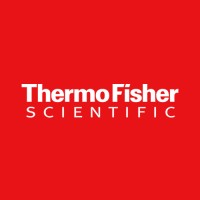IgG Secondary Antibody / Texas Red / Polyclonal
Product Details
| Description | Goat anti-Mouse IgG (H+L) Secondary Antibody, Texas Red-X conjugate. Anti-Mouse secondary antibodies are affinity-purified antibodies with well-characterized specificity for mouse immunoglobulins and are useful in the detection, sorting or purification of its specified target. Secondary antibodies offer increased versatility enabling users to use many detection systems (e.g. HRP, AP, fluorescence). They can also provide greater sensitivity through signal amplification as multiple secondary antibodies can bind to a single primary antibody. Most commonly, secondary antibodies are generated by immunizing the host animal with a pooled population of immunoglobulins from the target species and can be further purified and modified (i.e. immunoaffinity chromatography, antibody fragmentation, label conjugation, etc.) to generate highly specific reagents.IF 1-10 µg/mL - | |
|---|---|---|
| Conjugate | Texas Red | |
| Clone | Polyclonal | |
| Target Species | Mouse | |
| Applications | IF | |
| Supplier | Thermo Fisher Scientific | |
| Catalog # | Sign in to view product details, citations, and spectra | |
| Size | ||
| Price | ||
| Antigen | ||
| Host | ||
| Isotype |
About IgG
This gene encodes a protein that plays an important role in the immune response. This protein is a high-affinity Fc-gamma receptor. The gene is one of three related gene family members located on chromosome 1. [provided by RefSeq, Jul 2008]
This gene encodes a protein that plays an important role in the immune response. This protein is a high-affinity Fc-gamma receptor. The gene is one of three related gene family members located on chromosome 1. [provided by RefSeq, Jul 2008]
About Texas Red
Texas Red (Sulforhodamine 101 acid chloride) is an orange/red emitting dye with an excitation peak at 596 nm and an emission peak at 615 nm. Alternatives to Texas Red that can offer increased photostability and brightness include Alexa Fluor™ 594 (ThermoFisher Scientific), DyLight™ 594 (ThermoFisher Scientific), or CF®594 (BD Biosciences). Texas Red is most commonly used in cellular fluorescence microscopy applications, as the 594 nm laser is rare in flow cytometry. However, it can be sub-optimally excited by the 561 nm yellow-green laser. Texas Red is commonly used as an acceptor in the tandem fluorophore, PE-Texas Red also called ECD.
Texas Red (Sulforhodamine 101 acid chloride) is an orange/red emitting dye with an excitation peak at 596 nm and an emission peak at 615 nm. Alternatives to Texas Red that can offer increased photostability and brightness include Alexa Fluor™ 594 (ThermoFisher Scientific), DyLight™ 594 (ThermoFisher Scientific), or CF®594 (BD Biosciences). Texas Red is most commonly used in cellular fluorescence microscopy applications, as the 594 nm laser is rare in flow cytometry. However, it can be sub-optimally excited by the 561 nm yellow-green laser. Texas Red is commonly used as an acceptor in the tandem fluorophore, PE-Texas Red also called ECD.
Experiment Design Tools
Panel Builders
Looking to design a Microscopy or Flow Cytometry experiment?
Validation References
Reviews & Ratings
| Reviews |
|---|
Looking for more options?
10830 IgG antibodies from over 54 suppliers available with over 205 conjugates.





